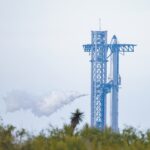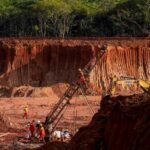Just as Apple was about to ramp up production for the iPhone 17, its plans for large-scale expansion in India have been stalled once again. According to a recent report by Bloomberg, Foxconn Technology Group has recalled approximately 300 mainland Chinese engineers from a factory in India, which could once again put the resilience and capacity of India’s manufacturing sector to the test.
iPhone Production Impact
The Economic Times of India reported that Foxconn withdrew mainland Chinese engineers from its subsidiary, Wistron’s factory in Tamil Nadu, marking the second such withdrawal in recent months. On July 2, it was reported that Foxconn had already recalled a similar number of mainland Chinese engineers and technicians from its iPhone factory in India. According to reports, the Wistron factory produces metal casings and display modules for older iPhone models and has not yet started production for the new iPhone 17 series. The factory only began operations a few months ago, and the assembly of screens there still relies heavily on imported components.
It remains unclear why these Foxconn engineers were withdrawn, but sources warned that, although most of the equipment installation and initial training had been completed, sending these experts back home could reduce the factory’s production efficiency. In response, Foxconn has reportedly begun airlifting engineers from Taiwan to fill the gap.
Multiple media outlets have analyzed that Apple can, for now, increase display imports and rely on other local suppliers for casings. However, the loss of experienced mainland Chinese employees may undermine the U.S. tech giant’s efforts to quickly localize its supply chain in India. Tech in Asia noted that the withdrawal of senior Chinese technicians could further delay Apple’s localization process, as replacing decades of accumulated manufacturing expertise requires significant time and resources—something even a company of Apple’s scale would struggle to achieve quickly.
Apple CFO Kevin Perlmutter had previously warned that tariffs could add $900 million in costs in the third fiscal quarter of 2025. Although the company’s strong cash flow provides a buffer, continued disruptions in its India operations could further erode gross margins.
Supply Chain Diversification Challenges
In recent years, Apple has been expanding its assembly, engineering, development, and testing operations in India to drive its supply chain diversification strategy. According to Reuters in April, Apple plans to have all iPhones sold to the U.S. manufactured in India to mitigate risks associated with tariffs and geopolitical tensions.
However, shifting the supply chain is far more complicated than anticipated. The Wall Street Journal reported earlier this month that Apple’s expansion in India not only involves transferring existing capacity but also requires building an entirely new manufacturing ecosystem with multiple suppliers, new infrastructure, workforce training, and policy support—necessary to reach the level of industrial coordination that mainland China has achieved over the past decades.
Recent developments have also exposed “frictions” faced by Indian suppliers during the early stages of expansion. An analysis by AInvest stated that Foxconn’s recall of mainland Chinese engineers from India revealed vulnerabilities in Apple’s supply chain there. Delays in training local engineers or integrating new manufacturing processes could create production bottlenecks, ultimately affecting Apple’s ability to meet demand in key markets, and serve as a warning against underestimating the challenges of supply chain decoupling.
Labor issues continue to pose concerns. Apple CEO Tim Cook has praised the skills and expertise of mainland Chinese assembly workers, emphasizing that this is the key reason the company has established most of its production lines in China—not merely lower costs. Business Standard reported that, to expand capacity, Foxconn deployed many experienced mainland Chinese engineers to accelerate production and train Indian workers. Bloomberg noted that Chinese management personnel played a crucial role in training local staff and getting production lines up and running quickly. India only began large-scale iPhone assembly four years ago.
Foreign media also reported that industry observers have raised concerns over labor standards and potential exploitation, pointing out that although India’s smartphone exports have surged, production still heavily relies on foreign labor brought in from places like Vietnam.
The Wall Street Journal stated, “India is catching up,” noting that the country has upgraded infrastructure and introduced a manufacturing subsidy program, successfully boosting the smartphone manufacturing sector. Individual states have also launched their own incentive programs to attract Apple suppliers and other tech manufacturers. However, forming a mature industrial cluster in India—with a dense network of component suppliers and logistics systems comparable to China—remains a long way off. The report cited research by Tufts University professor Chris Miller and others, based on disclosures from Apple’s suppliers, showing that companies headquartered in mainland China dominate precision manufacturing. As of fiscal year 2023, among Apple’s 187 top-tier suppliers, over 150 had factories in China, while only 14 had facilities in India.
Resistance from “Made in America” Initiative
Beyond economic factors, India must also contend with complex geopolitical considerations in its operations. Liu Zongyi, director of the South Asia Research Center at the Shanghai Institute of International Studies, stated on the 25th that although China-India relations have eased, structural contradictions remain. Furthermore, challenges exposed in Apple’s supply chain shift to India reflect common issues faced by investors, such as supply chain volatility, worker skill levels, attendance problems, labor rights demands, hereditary labor, and land acquisition difficulties. Indian suppliers need to prepare in advance.
Liu added that Apple products manufactured in India are primarily intended for the U.S. and European markets, and former U.S. President Donald Trump explicitly stated that he wants Apple to produce iPhones in the U.S. Therefore, the expansion of Apple’s supply chain in India will also face resistance from the “Made in America” initiative. How to maintain supply chain resilience and production efficiency amid such geopolitical currents will be a critical issue for both Indian suppliers and the country itself.













Leave a comment